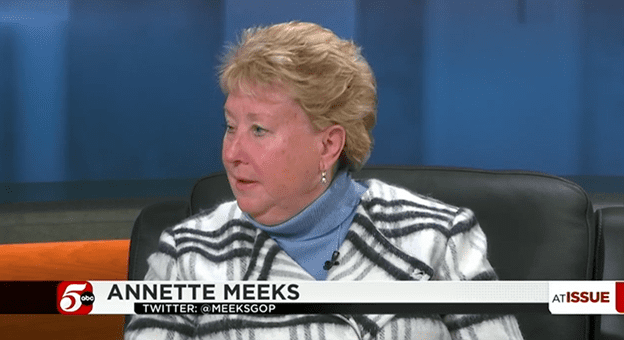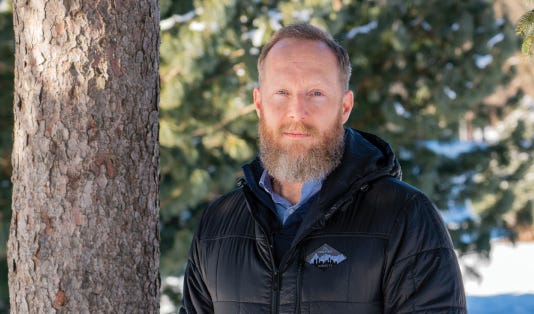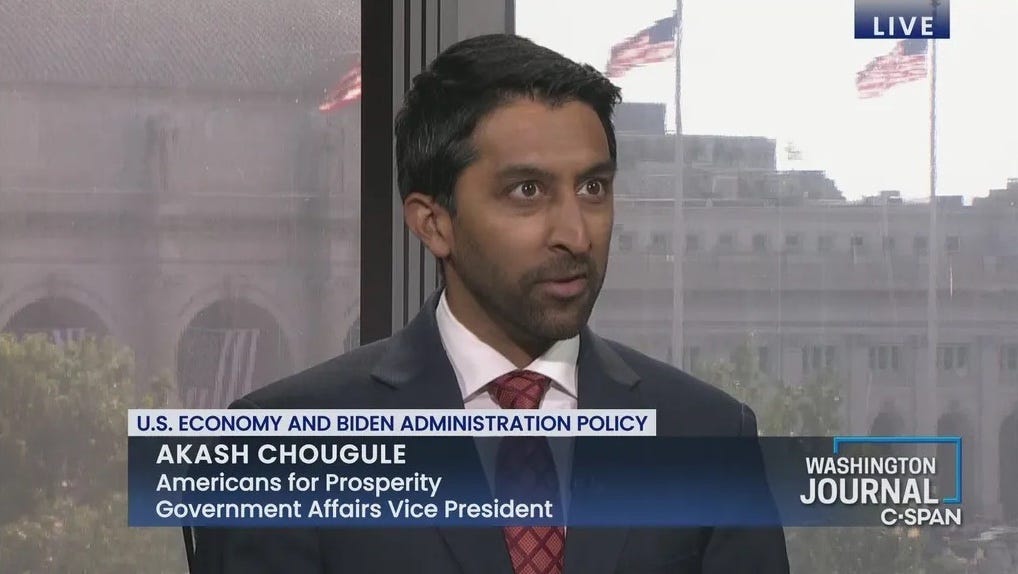Price points
FreeCons take on government policies that hike the cost of living
According to media surveys and exit polls, the cost of living remains one of the top issues on voters’ minds this year.
Freedom Conservatives agree with their concerns. “Americans can only prosper in an economy in which they can afford the basics of everyday life: food, shelter, health care, and energy,” we wrote in the Freedom Conservatism Statement of Principles.
“A corrosive combination of government intervention and private cronyism is making these basics unaffordable to many Americans.”
Today, we spotlight FreeCons who work on each of these issues — food, shelter, health care, and energy — as well as the broader fiscal and monetary causes of inflation.
Food for thought
Amber Gunn is a senior policy analyst at the Idaho-based Mountain States Policy Center. She’s also a FreeCon signatory.
A former director of economic policy for the Freedom Foundation. Gunn has served as a voting member on the American Legislative Exchange Council's Tax and Fiscal Policy Task Force and co-authored ALEC’s State Budget Reform Toolkit.
Gunn’s work has been featured in such publications as the Seattle Times, Investor’s Business Daily, and The Street.
In a recent column published in the Capital Press and other outlets, she explained how a “cage-free” requirement imposed by the Washington legislature — foolishly following the lead of the California legislature — has jacked up the price of eggs.
“It’s one thing to give consumers options, it’s quite another to eliminate choice through legislation,” Gunn wrote. In effect, state lawmakers are “pushing citizens away from protein-rich eggs that promote brain and eye health toward cheaper, less nutritionally dense grain options (think sugary cereals and other breakfast junk).”
“You may need to break a few eggs to make an omelet but the yolk from bad policies can spoil the meal for everyone.”
Build, baby, build
Michael Munger is a professor of political science and director of the Philosophy, Politics, and Economics certificate program at Duke University.
He previously taught at Dartmouth College, the University of Texas, and the University of North Carolina (where he was director of the master of public administration program). He also worked as a staff economist at the Federal Trade Commission during the Reagan Administration.
A FreeCon signatory, Munger is a past president of the Public Choice Society and served as North American editor of the journal Public Choice. He currently serves as co-editor of The Independent Review, hosts the podcast “The Answer is Transaction Costs,” and writes frequently for the American Institute of Economic Research and Liberty Fund’s Econlog, among other outlets.
In a much-cited AIER piece, Munger identified the many barriers placed on home construction by ill-advised zoning and licensing laws. “All housing is affordable housing,” he began.
“If developers build cheap housing, the price of all housing except the very most luxurious will fall. Alternatively, and perhaps less obviously, if we build more luxury housing, then the price of all housing will fall, as there will be less pressure for gentrification or ‘teardowns.’”
Medical meltdown
Annette Meeks is founder and CEO of the Freedom Foundation of Minnesota, an independent, non-profit, education and research organization that develops and actively advocates the principles of individual freedom, personal responsibility, economic freedom, and limited government.
A FreeCon signatory, Meeks previously served as deputy chief of staff to former House Speaker Newt Gingrich and on several boards and commissions in Minnesota.
In a recent op-ed for the Minneapolis Star Tribune, she pointed out that from 2013 to 2021, health care spending per Minnesotan surged nearly 27%. This hasn’t just squeezed household budgets. Rising costs have forced some rural hospitals to close and others to reduce the quantity and quality of services provided.
“We need swift and meaningful action that will encourage competition in the insurance market that will ensure proper funding for hospitals and provide genuine health insurance choices throughout the state,” Meeks concluded.
“Without these basic reforms, our broken insurance market will likely get sicker and more and more Minnesotans will be forced to make the worst choice: forgoing health care altogether.”
Energy crisis
Jason Hayes is the director of energy and environmental policy for the Mackinac Center for Public Policy, one of the nation’s leading state-based think tanks. He’s also a FreeCon signatory.
Hayes previously worked as a backcountry ranger in British Columbia’s provincial parks, as a forester in British Columbia’s boreal forest, and as a researcher of National Parks management and grizzly bear biology for the Fraser Institute.
He also spent over a decade researching and communicating energy and environmental policy with the Canadian and American energy industry.
In a recent magazine article, Hayes explained why a new “net-zero” emissions law will cost the residents of his state thousands of dollars a year while having a negligible effect on the environment or climate.
“A grid based on wind, solar, and battery would expose Michigan residents to repeated service interruptions and blackouts,” he argued. “During the most severe disruption, blackouts could last for as long as 61 continuous hours in late January, when cold temperatures drive the greatest demand for a reliable electric supply.”
On the “benefit” side of the ledger, Hayes noted that if the state were to meet its emissions goal, that would “reduce average world temperatures by an almost imperceptible amount: 1/1,000th of a degree Celsius.”
Bidenomics bust
Akash Chougule is vice president of government affairs for Americans for Prosperity and formerly served as vice president of the Economic Opportunity Initiative at the Stand Together Chamber of Commerce.
Chougule, a FreeCon signatory, previously worked as a policy staffer on the U.S. House Education and Labor Committee, handling labor relations, wage-and-hour, and trade issues. He is a regular contributor on the Fox News Channel, Fox Business Network, C-SPAN, NPR, and others and his writing has appeared in such outlets as the Wall Street Journal, USA Today, and the New York Post.
In a recent op-ed for RealClearPolicy, Chougule chronicled how Biden’s deficit-spending spree helped to fuel a devastating inflation.
“The President may be proud of ‘Bidenomics,’ with its massive, seismic transformation in the size and scope of government, but to voters, it is raw pain,” he wrote. “Like a runaway train that has smashed into a small town’s railyard, everywhere you look, no part of the life we knew remains as it was before.”
Since Biden took office, he pointed out, prices are up 17.9% but wages are up only 12.7%. Working families “need over $11,000 more each year to maintain the life they had before Bidenomics and they aren’t making that.”





